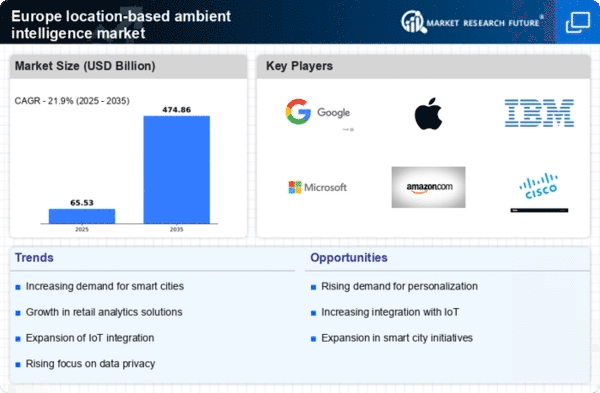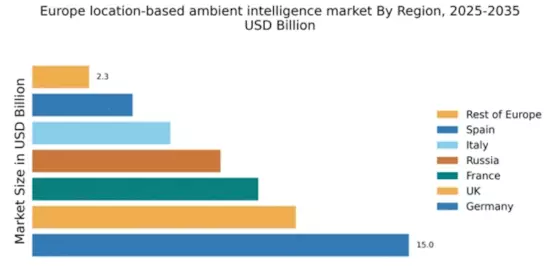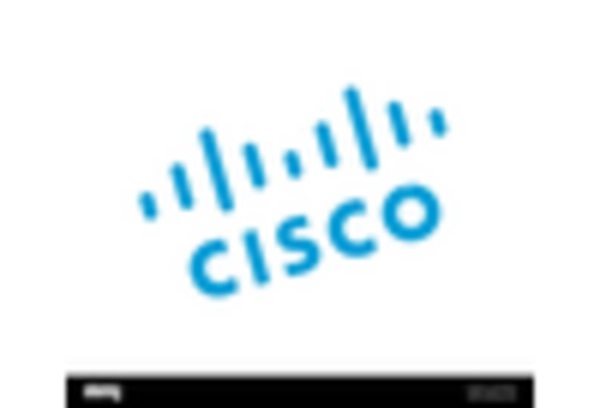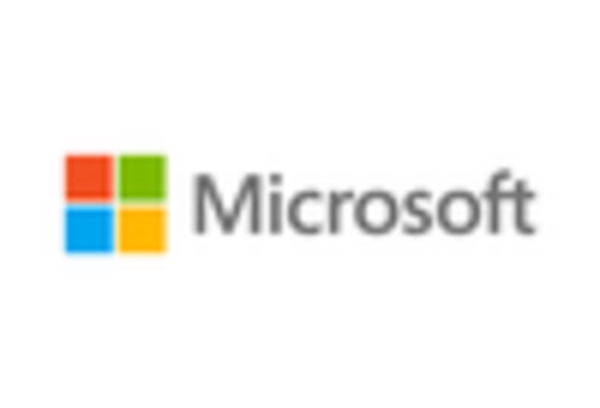Emergence of 5G Technology
The rollout of 5G technology across Europe is poised to revolutionize the location based-ambient-intelligence market. With its high-speed connectivity and low latency, 5G enables real-time data transmission, which is essential for applications such as autonomous vehicles and smart infrastructure. This technological advancement is expected to enhance the capabilities of location-based services, allowing for more sophisticated and responsive systems. Market Research Future suggest that the adoption of 5G could increase the efficiency of location-based applications by up to 30%. As telecommunications companies invest heavily in 5G infrastructure, the location based-ambient-intelligence market is likely to benefit from improved service delivery and user experiences, fostering further growth in this sector.
Advancements in Sensor Technology
The location based-ambient-intelligence market in Europe is experiencing a surge due to advancements in sensor technology. These innovations enable more accurate data collection and real-time processing, which are crucial for applications such as smart transportation and urban planning. For instance, the integration of IoT sensors in public spaces allows for enhanced monitoring of foot traffic and environmental conditions. This data can lead to improved decision-making processes for city planners and businesses alike. The European market is projected to grow at a CAGR of 15% over the next five years, driven by these technological enhancements. As sensor technology continues to evolve, it is likely to unlock new opportunities within the location based-ambient-intelligence market, fostering a more interconnected urban environment.
Government Initiatives and Funding
Government initiatives across Europe are playing a pivotal role in the growth of the location based-ambient-intelligence market. Various national and regional programs are being implemented to promote smart city projects, which often rely on ambient intelligence technologies. For instance, the European Union has allocated substantial funding for urban innovation projects aimed at improving public services through data-driven solutions. This funding is expected to exceed €1 billion by 2027, fostering collaboration between public and private sectors. Such initiatives not only enhance infrastructure but also stimulate economic growth, thereby creating a favorable environment for the location based-ambient-intelligence market to thrive. The alignment of government policies with technological advancements is likely to accelerate market development.
Increased Demand for Personalized Services
Consumer expectations in Europe are shifting towards personalized experiences, which is significantly impacting the location based-ambient-intelligence market. Businesses are increasingly leveraging location data to tailor services and products to individual preferences. For example, retailers can utilize geolocation data to send targeted promotions to customers' smartphones when they are near a store. This trend is supported by a report indicating that 70% of consumers prefer personalized marketing messages. As companies strive to enhance customer engagement, the demand for location-based services is expected to rise, potentially increasing market revenues by 20% in the coming years. This growing emphasis on personalization is likely to drive innovation and competition within the location based-ambient-intelligence market.
Rising Urbanization and Population Density
The rapid urbanization in Europe is significantly influencing the location based-ambient-intelligence market. As more people migrate to urban areas, cities face challenges related to infrastructure, transportation, and resource management. The increasing population density necessitates innovative solutions to enhance urban living conditions. For example, location-based services can optimize traffic flow and reduce congestion, thereby improving overall quality of life. According to projections, urban areas in Europe are expected to house over 80% of the population by 2030. This trend indicates a growing need for ambient intelligence solutions that can efficiently manage urban challenges. Consequently, the location based-ambient-intelligence market is likely to expand as cities seek to implement smart technologies to address these pressing issues.

















